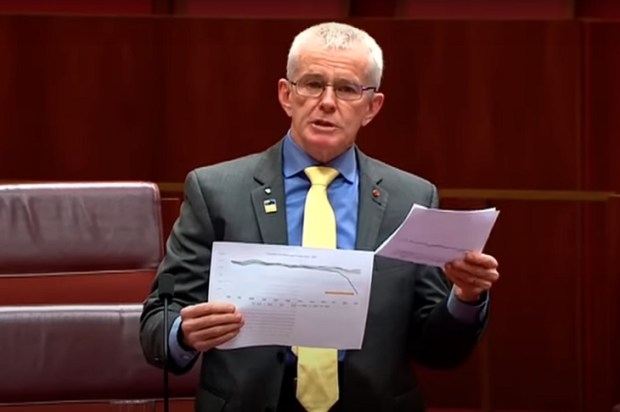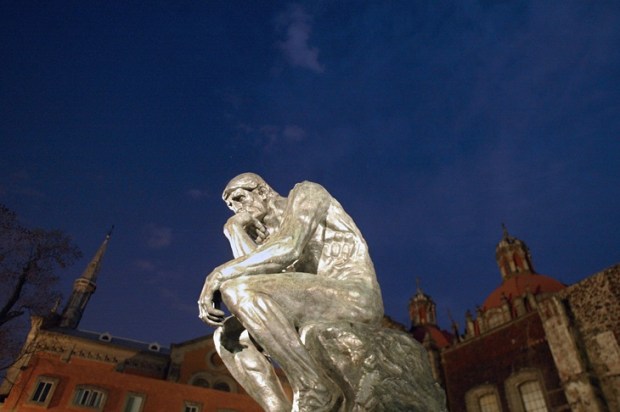Elon Musk, ever the provocateur, has made perhaps his most contentious appeal: the world needs more babies. His pro-natalist views are hardly a secret, underscored by his own decision to father 12 children with three women. But what’s even more shocking are the responses given by several progressive media outlets. Many of these outlets have shifted away from scrutinising Musk’s life to questioning the very idea of having children in today’s world.
Musk might not perfectly embody traditional family values, but at least he opposes a society that has become increasingly uneasy about bringing new lives into the world. Comments about his personal life highlight a paradox which has come to define our time. Despite technological, medical, and economic developments, birth rates worldwide — especially in the developed world — are falling. While it’s sometimes the case that some people simply decide not to have children, the issue lies in the fact that many are morally discouraged from doing so. The moral rationale has changed over time — from Malthusianism, to climate anxiety, to abortion rights. While seemingly different, they share one common root: the desire to engineer society.
Social engineering views people as burdens, rather than assets, to society. A famous example of this is Malthusian theory, which predicted that exponential population growth would outstrip the ‘linearly increasing’ food supply. It was argued that more lives implied there would ‘not be enough food to go around’. The Industrial Revolution refuted this imagined catastrophe since sustained economic growth meant increased production while taking up fewer resources.
Despite this, many on the left remained sceptical, leading to Paul R. Ehrlich’s The Population Bomb, revamping Malthusianism to incorrectly forecast widespread famine in the 1970s. The central flaw in Malthusian thinking — the assumption that there would be too many ‘mouths to feed’ — ignores a key reality: more people also represent more ‘minds’ to innovate and solve problems. People, through their ingenuity, drive the creation of wealth and are not ‘livestock’ to be fed by a centralised government. More possibilities for wealth creation can, therefore, arise from a growing population. Not only was there no widespread starvation, but worldwide extreme poverty declined considerably over the last generation.
The real issue, then, lies in the pessimism surrounding the ability of future generations to transform today’s challenges into tomorrow’s progress. While the Malthusian fear of population growth once focused on resource scarcity, these concerns have evolved into a new fear: climate anxiety. In a similar vein to Malthusianism, a recent op-ed in Scientific American titled Eight Billion People in the World Is a Crisis, Not an Achievement pointed to family planning and access to education as a solution to climate change.
In the late 2000s, English scientist James Lovelock declared in various outlets that global warming ‘will hit the fan in 20 years’ and that the planet is essentially doomed.
Not only has media coverage promoted the idea that ‘new people’ would destroy the environment, but it has suggested the moral quandary of bringing others into a world purportedly nearing collapse. It is no wonder that younger generations opt out of having children after being told the Earth has only a few years left.
Although the ‘issues’ have shifted with the times, there have been consistent efforts by policymakers and scientists to persuade people that the creation of new lives hinges on their ‘authoritative’ opinions. The implementation of this narrative has now placed China in a difficult position. After its one-child policy (intended to alleviate environmental and economic concerns) ended in disaster, Beijing has started to demand its women bear more children. These pleas, however — designed to counter China’s aging population and shrinking workforce — have surely been met with resistance from women. Yet, the West seems unwilling to learn from China’s failed experiments in social engineering.
The West’s twist on this is that individuals have been led to believe that surrendering to these efforts constitutes a voluntary choice for their own benefit. Such was the case with abortion rights, originally advocated by figures like Margaret Sanger, a supporter of eugenics — a concept widely accepted among the Progressive intellectual scene of the 1890s to 1920. Certain groups during that era, such as the disabled, the impoverished, and the African-American minority, were often told not to have children under the guise of ‘bodily autonomy’.
There has been a tendency to view lives as burdens to be managed — either restricted or encouraged based on what policymakers consider appropriate for the circumstances at a given time. While Elon Musk’s fathering of 12 children serves as a radical example, there is one thing about which he is spot on: human life is valuable and sacred. The question of whether to bring new lives into the world does not solely depend on economics, climate, or the ‘issues’ of the time; it is a reflection of how we perceive the value of human existence. In recent decades, narratives shaped by social engineering reveal a misguided sense of pessimism in how future generations will rise to meet the challenges of today.

























